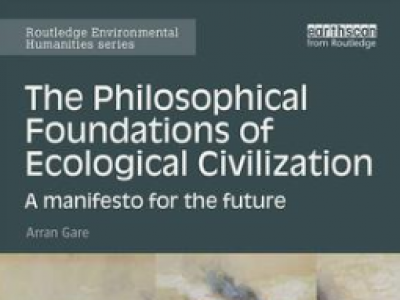BOOK REVIEW The Philosophical Foundations of Ecological Civilization

Our conceptions of the planet, the universe and our place in or on them matter because, when mistaken, they confound us first and then they materially mislead. To view the planet as a machine, for example, is to be inclined to see it as indestructible: Made of “primitive particles … so very hard as never to wear or break in pieces,”26 says Newton, again… It is also to view the planet as unending, often today as endless in capacity and as capable of doing what it does forever. What does it do? Few things as impressive as the support it offers a growing human presence. The planet as machine also means that human labour and industry cannot really harm it - also a part of Newton’s promise. The machine, after all, is just big and little cogs and any damage we see must be unreal or, at worst, minor. All in all, we have no need worry about its future or its future life. Attitudes or cultures of care have no place here and, climate change aside, there is no better evidence of this than plastic garbage choking the world’s marine life and oceans.
Intrinsic Earth is not responsible for content held on external websites.
Relevance
Peter Vintila's review of Arran Gare's book, The Philosophical Foundations of Ecological Civilisation: A Manifesto for the Future, Routledge, 2017.
